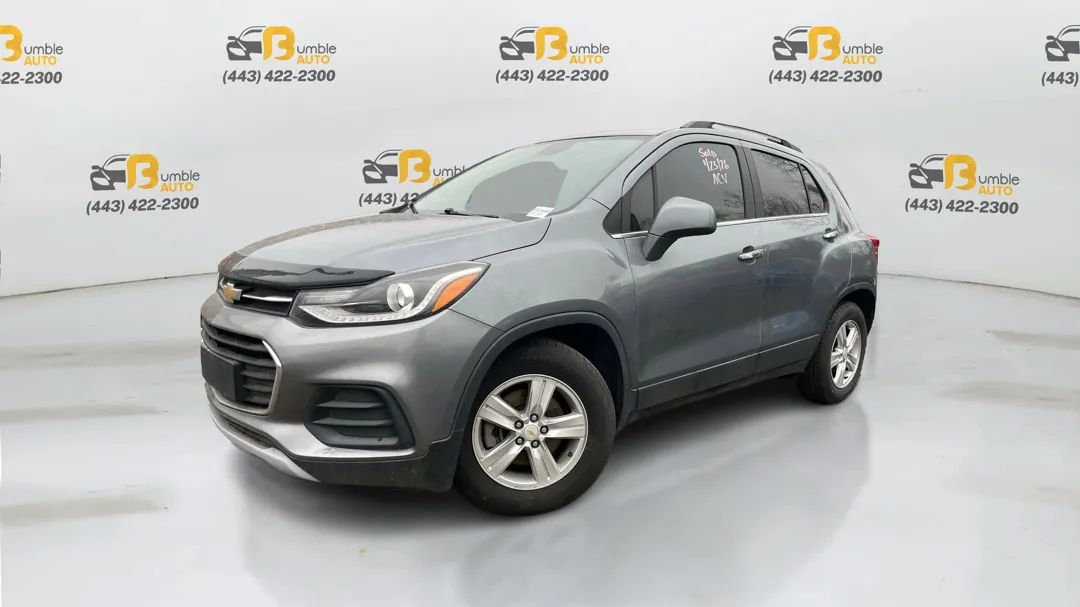Cracking the Code: How to Find the Best Car Insurance Rates
Table of Contents
- The Importance of Car Insurance
- Factors That Affect Car Insurance Rates
- Types of Car Insurance Coverage
- Liability Insurance
- Collision Insurance
- Comprehensive Insurance
- How to Determine Your Car Insurance Needs
- Tips for Finding the Best Car Insurance Rates
- Comparing Car Insurance Quotes
- Understanding Car Insurance Discounts
- The Importance of a Good Driving Record
- How to Lower Your Car Insurance Premiums
- Conclusion: Finding the Best Car Insurance Rates

Shopping for car insurance can be overwhelming. With so many options, it's hard to know where to start. That's why cracking the code on how to find the best car insurance rates is essential. In this article, we will guide you through the process, helping you save time and money.
When it comes to car insurance, you want to find a policy that gives you the best coverage at a price that won't break the bank. By understanding the factors that contribute to your insurance rates, you can make informed decisions and potentially lower your premiums.
Whether you're a new driver, have a less-than-perfect driving record, or simply want to see if you're getting the best deal, we've got you covered. From comparing quotes to understanding policy terms and conditions, we'll provide you with valuable insights and practical advice to navigate the world of car insurance.
Whether you're comparing quotes or considering car repair insurance coverage, we’ve got you covered with practical advice for finding the best insurance rates.
So, buckle up and get ready to crack the code on finding the best car insurance rates. Don't miss out on the opportunity to save money and protect your vehicle. Let's dive in!
The Importance of Car Insurance

Car insurance is not just a legal requirement; it serves as a vital safety net that protects you financially in case of accidents, theft, or damage. Accidents can happen at any time, and the aftermath can be financially crippling if you're unprepared. Having the right insurance policy ensures that you can cover repair costs, medical expenses, and even legal fees without plunging into debt. Furthermore, car insurance provides peace of mind, allowing you to drive with confidence, knowing that you have financial protection in place.
Driving responsibly also means understanding the risks of driving without insurance in MD state, where penalties can be severe.
Additionally, car insurance is important for protecting your assets. If you're involved in an accident and found to be at fault, you could be held liable for damages and injuries. This liability can extend to significant amounts of money, depending on the severity of the incident. Without insurance, you may have to pay out of pocket, which could lead to the loss of savings, property, or even your vehicle. Thus, having adequate coverage not only safeguards your financial future but also protects you from potential legal ramifications.
Lastly, car insurance plays a crucial role in promoting responsible driving. Many policies offer incentives for safe driving habits, such as lower premiums for maintaining a clean driving record. This encourages drivers to be more cautious on the road, ultimately reducing the number of accidents. When everyone is insured and driving responsibly, it contributes to overall road safety, benefiting society as a whole. Thus, understanding the importance of car insurance is the first step in ensuring that you are adequately protected.
Factors That Affect Car Insurance Rates

Several factors influence how much you pay for car insurance. One of the most significant is your driving record. Insurers take into account your history of accidents, traffic violations, and claims. A clean driving record typically results in lower premiums, while a history of incidents can lead to higher rates. Additionally, the type of vehicle you drive plays a role; more expensive cars or those with high theft rates often lead to higher insurance costs. Understanding these factors can help you make informed choices when shopping for insurance.
Another important factor is your location. Insurance companies analyze regional data to assess risk based on where you live. Areas with high crime rates or dense populations may experience higher premiums due to the increased likelihood of accidents or theft. Conversely, living in a rural area with lower traffic may result in lower rates. Additionally, your age and gender can also affect your premium. Statistically, younger drivers and males tend to have higher accident rates, resulting in elevated insurance costs.
Lastly, your credit score can significantly impact your car insurance rates. Insurers have found a correlation between credit scores and the likelihood of filing claims. A strong credit history often leads to lower premiums, while poor credit can increase your rates. This practice, known as credit-based insurance scoring, varies by state, so it's essential to understand how your credit might influence your insurance costs. By being aware of these factors, you can take steps to potentially lower your premiums.
Types of Car Insurance Coverage

Understanding the different types of car insurance coverage is crucial for selecting the best policy for your needs.
Liability Insurance
The most basic form is liability insurance, which covers damages to other people and their property when you are at fault in an accident. This type of coverage is often legally required and protects you from financial losses associated with legal claims. Liability coverage usually consists of two parts: bodily injury liability and property damage liability, both of which are essential for safeguarding your finances.
Collision Insurance
Another common type of coverage is collision insurance, which pays for damages to your vehicle resulting from a collision, regardless of who is at fault. This coverage is especially important for newer or more expensive vehicles, as repair costs can be substantial. Collision insurance often comes with a deductible, which is the amount you must pay out of pocket before the insurance kicks in. Understanding your options regarding collision coverage can help you choose the right level of protection.
Comprehensive Insurance
Comprehensive insurance is also worth considering, as it covers damages to your vehicle caused by non-collision events, such as theft, vandalism, or natural disasters. This coverage can provide peace of mind, particularly if you live in an area prone to severe weather or have a vehicle that is a target for thieves.
For drivers seeking additional financial protection, why you need car maintenance insurance becomes a relevant question to explore. By evaluating your needs and understanding the various types of coverage available, you can make informed decisions that align with your financial situation and driving habits.
How to Determine Your Car Insurance Needs

Determining your car insurance needs requires careful consideration of various factors unique to your situation. Start by assessing your vehicle's value and condition. If you own a new or high-value car, you may want to invest in comprehensive coverage to protect your investment. Conversely, if you drive an older vehicle with a low market value, opting for minimal coverage may suffice, as the cost of premiums could outweigh potential payouts.
Next, evaluate your driving habits. If you frequently drive long distances or in high-traffic areas, you might face a higher risk of accidents, which could necessitate more extensive coverage. On the other hand, if you primarily use your car for short trips and your driving history is clean, you may be able to get away with a lower coverage level. If you live in Maryland, reviewing a guide to Maryland’s car insurance will help you find policies tailored to state requirements. Understanding your lifestyle and driving patterns can help you tailor your insurance policy effectively.
Finally, consider your financial situation and risk tolerance. If you have significant savings and can afford to pay out-of-pocket for damages, you might opt for higher deductibles and lower premiums. However, if you prefer to minimize your financial risk, selecting a plan with lower deductibles may be more appropriate. By carefully evaluating these aspects, you can determine the right balance of coverage that meets your needs without overspending.
Tips for Finding the Best Car Insurance Rates

Finding the best car insurance rates requires a strategic approach. Start by gathering quotes from multiple insurance providers. Online comparison tools can streamline this process, allowing you to input your information once and receive quotes from various companies. Be sure to compare not only the premium amounts but also the coverage options and limits offered. Sometimes, a slightly higher premium may provide significantly better coverage, making it worth the investment.
Another tip is to consider bundling your insurance policies. Many insurers offer discounts when you purchase multiple types of coverage from them, such as combining auto insurance with home or renters insurance. This bundling can lead to significant savings and simplify your monthly payments, as you'll only need to manage one provider. Residents of Maryland, Elkridge car financing services can benefit from bundled insurance options for added savings. Additionally, don’t hesitate to ask your insurer about any available discounts, as these can vary widely from one company to another.
Finally, review your coverage regularly. As your circumstances change—such as getting married, moving, or buying a new car—your insurance needs may evolve. Conducting an annual review of your policy allows you to adjust your coverage and potentially find better rates. By staying proactive and informed, you can ensure that you are always getting the best deal possible.
Comparing Car Insurance Quotes
When comparing car insurance quotes, it's crucial to ensure you're looking at equivalent coverage levels. Different insurers may offer varying limits and deductibles, which can make direct comparisons challenging. Start by determining the coverage types and levels you need, then request quotes that reflect those specifications. This way, you'll have a clearer understanding of which companies provide the best value for your desired coverage.
In addition to the premium costs, pay attention to the insurer's reputation and customer service ratings. A lower premium may not be worth it if the company has a history of poor claims handling or customer complaints. Research reviews and ratings from independent agencies to gauge the reliability of the insurers you're considering. This information can help you make an informed choice about where to place your business.
Lastly, don't overlook the importance of the fine print. Read through the terms and conditions of each policy carefully to understand what is covered and what exclusions may apply. Some policies may appear cheaper upfront but have high deductibles or limited coverage, which could end up costing you more in the long run. By taking the time to compare quotes thoroughly, you can find the policy that best fits your needs and budget.
Understanding Car Insurance Discounts

Car insurance discounts can significantly reduce your premiums, making it essential to understand what options are available. Many insurers offer discounts for safe driving records, where drivers with clean records can save a percentage on their premiums. Additionally, if you complete a defensive driving course, you may qualify for further reductions. It's wise to inquire about such programs when shopping for insurance to maximize your savings.
Another common discount is for low mileage. If you drive infrequently or have a short commute, your risk of being involved in an accident decreases, which many insurers reward with lower premiums. Similarly, students with good grades may also qualify for discounts, as insurers often view academic performance as an indicator of responsibility. Be sure to communicate any relevant information to your insurer to ensure you take full advantage of available discounts.
Moreover, consider loyalty discounts. If you’ve been with the same insurance company for a number of years, they may offer a discount for your continued business. However, it’s important to compare rates from different providers periodically. Sometimes, switching insurers can yield better deals, even with loyalty discounts in play. Staying informed about discounts and regularly assessing your options can help you maintain the best possible rate.
The Importance of a Good Driving Record

A good driving record is one of the most crucial factors in determining your car insurance rates. Insurers view a clean driving history as indicative of responsible behavior, which translates to lower risk for them. Consequently, drivers with clean records are often rewarded with lower premiums. Conversely, if you have multiple accidents or traffic violations, your rates are likely to increase significantly, reflecting the added risk that insurers perceive you to pose.
Moreover, maintaining a good driving record can open the door to additional discounts. Many insurance companies offer safe driver discounts, which can provide substantial savings for those who have avoided accidents or violations over a specified period. This creates a positive cycle where safe driving leads to lower rates, making it financially beneficial to drive responsibly.
In addition to the immediate financial impacts, a good driving record can also enhance your overall quality of life. It not only saves you money on insurance but also increases your likelihood of being approved for other types of insurance or loans. In essence, maintaining a clean driving record is not just about saving on premiums; it's about fostering a responsible and financially secure lifestyle.
How to Lower Your Car Insurance Premiums
Lowering your car insurance premiums is achievable through various strategies. One of the most straightforward methods is to increase your deductible. While this means you'll pay more out-of-pocket in the event of a claim, it can significantly lower your monthly premiums. Evaluate your financial situation to determine a deductible that you can comfortably afford in case of an accident without compromising your financial stability.
Another effective way to reduce premiums is to take advantage of discounts. As previously mentioned, inquire with your insurer about available discounts for safe driving, bundling policies, low mileage, or even completing a defensive driving course. You’d be surprised how much these small adjustments can contribute to lowering your overall costs. Regularly reviewing your policy can help ensure you're not missing out on any potential savings.
Finally, consider shopping around for better rates. Insurance providers often compete for your business, and rates can vary significantly between companies. If you find that your current insurer isn’t offering competitive rates, don’t hesitate to switch providers. Just be sure to compare coverage options and read reviews to ensure you're making the best choice for both your budget and your needs. By being proactive in managing your insurance policy, you can successfully lower your premiums and save money over time.
Conclusion: Finding the Best Car Insurance Rates
In conclusion, finding the best car insurance rates is a journey that requires research, awareness, and strategic planning. By understanding the importance of car insurance and the various factors that influence rates, you can make informed decisions tailored to your unique needs. Evaluating different types of coverage and determining your specific requirements will enable you to select a policy that offers both protection and value.
Comparing quotes, recognizing available discounts, and maintaining a good driving record are all essential steps in your quest for affordable insurance. Regularly reviewing your coverage and being adaptable to changes in your circumstances can help you stay on top of your insurance needs and potentially save money. Remember, car insurance is not just a legal requirement; it’s a critical component of financial security that protects you, your assets, and your peace of mind.
By following the tips and strategies outlined in this article, you can crack the code on finding the best car insurance rates. Armed with knowledge and a proactive mindset, you can navigate the often-overwhelming world of car insurance with confidence and assurance. Ultimately, the goal is to secure a policy that provides you with the coverage you need at a price that fits your budget, allowing you to drive safely and responsibly.








